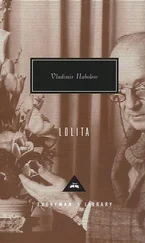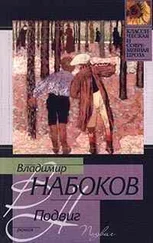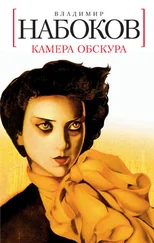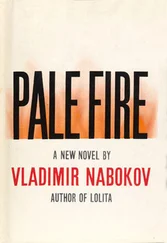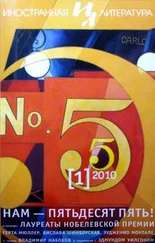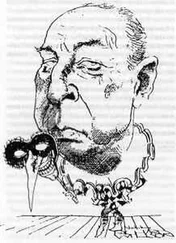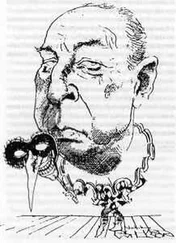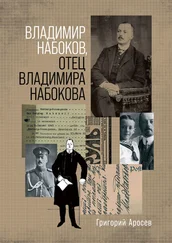Владимир Набоков - Pale Fire
Здесь есть возможность читать онлайн «Владимир Набоков - Pale Fire» весь текст электронной книги совершенно бесплатно (целиком полную версию без сокращений). В некоторых случаях можно слушать аудио, скачать через торрент в формате fb2 и присутствует краткое содержание. Жанр: Классическая проза, на английском языке. Описание произведения, (предисловие) а так же отзывы посетителей доступны на портале библиотеки ЛибКат.
- Название:Pale Fire
- Автор:
- Жанр:
- Год:неизвестен
- ISBN:нет данных
- Рейтинг книги:4 / 5. Голосов: 1
-
Избранное:Добавить в избранное
- Отзывы:
-
Ваша оценка:
- 80
- 1
- 2
- 3
- 4
- 5
Pale Fire: краткое содержание, описание и аннотация
Предлагаем к чтению аннотацию, описание, краткое содержание или предисловие (зависит от того, что написал сам автор книги «Pale Fire»). Если вы не нашли необходимую информацию о книге — напишите в комментариях, мы постараемся отыскать её.
Pale Fire — читать онлайн бесплатно полную книгу (весь текст) целиком
Ниже представлен текст книги, разбитый по страницам. Система сохранения места последней прочитанной страницы, позволяет с удобством читать онлайн бесплатно книгу «Pale Fire», без необходимости каждый раз заново искать на чём Вы остановились. Поставьте закладку, и сможете в любой момент перейти на страницу, на которой закончили чтение.
Интервал:
Закладка:
My commentary to this poem, now in the hands of my readers, represents an attempt to sort out those echoes and wavelets of fire, and pale phosphorescent hints, and all the many subliminal debts to me. Some of my notes may sound bitter - but I have done my best not to air any grievances. And in this final scholium my intention is not to complain of the vulgar and cruel nonsense that professional reporters and Shade's "friends" in the obituaries they concocted allowed themselves to spout when misdescribing the circumstances of Shade's death. I regard their references to me as a mixture of of journalistic callousness and the venom of vipers. I do not doubt that many of the statements made in this work will be brushed aside by the guilty parties when it is out. Mrs. Shade will not remember having been shown by her husband "who showed her everything" one or two of the precious variants. The three students lying on the grass will turn out to be totally amnesic. The desk girl at the Library will not recall (will have been told not to recall) anybody asking for Dr. Kinbote on the day of the murder. And I am sure that Mr. Emerald will interrupt briefly his investigation of some mammate student's resilient charms to deny with the vigor of roused virility that he ever gave anybody a lift to my house that evening. In other words, everything will be done to cut off my person completely from my dear friend's fate.
Nevertheless, I have had my little revenge: public misapprehension indirectly helped me to obtain the right of publishing Pale Fire. My good gardener, when enthusiastically relating to everybody what he had seen, certainly erred in several respects - not so much perhaps in his exaggerated account of my "heroism" as in the assumption that Shade had been deliberately aimed at by the so-called Jack Grey; but Shade's widow found herself so deeply affected by the idea of my having "thrown myself" between the gunman and his target that during a scene I shall never forget, she cried out, stroking my hands: "There are things for which no recompense in this world or another is great enough." That "other world" comes in handy when misfortune befalls the infidel but I let it pass of course, and, indeed, resolved not to refute anything, saying instead: "Oh, but there is a recompense, my dear Sybil. It may seem to you a very modest request but - give me the permission, Sybil, to edit and publish John's last poem." The permission was given at once, with new cries and new hugs, and already next day her signature was under the agreement I had a quick little lawyer draw up. That moment of grateful grief you soon forgot, dear girl. But I assure you that I do not mean any harm, and that John Shade perhaps, will not be too much annoyed by my notes, despite the intrigues and the dirt.
Because of these machinations I was confronted with nightmare problems in my endeavors to make people calmly see - without having them immediately scream and hustle me - the truth of the tragedy - a tragedy in which I had been not a "chance witness" but the protagonist, and the main, if only potential, victim. The hullabaloo ended by affecting the course of my new life, and necessitated my removal to this modest mountain cabin; but I did manage to obtain, soon after his detention, an interview, perhaps even two interviews, with the prisoner. He was now much, more lucid than when he cowered bleeding on my porch step, and he told me all I wanted to know. By making him believe I could help him at his trial I forced him to confess his heinous crime - his deceiving the police and the nation by posing as Jack Grey, escapee from an asylum, who mistook Shade for the man who sent him there. A few days later, alas, he thwarted justice by slitting his throat with a safety razor blade salvaged from an unwatched garbage container. He died, not so much because having played his part in the story he saw no point in existing any longer, but because he could not live down this last crowning botch - killing the wrong person when the right one stood before him. In other words, his life ended not in a feeble splutter of the clockwork but in a gesture of humanoid despair. Enough of this. Exit Jack Grey.
I cannot recall without a shudder the lugubrious week that I spent in New Wye before leaving it, I hope, forever. I lived in constant fear that robbers would deprive me of my tender treasure. Some of my readers may laugh when they learn that I fussily removed it from my black valise to an empty steel box in my landlord's study, and a few hours later took the manuscript out again, and for several days wore it, as it were, having distributed the ninety-two index cards about my person, twenty in the right-hand pocket of my coat, as many in the left-hand one, a batch of forty against my right nipple and the twelve precious ones with variants in my innermost left-breast pocket. I blessed my royal stars for having taught myself wife work, for I now sewed up all four pockets. Thus with cautious steps, among deceived enemies, I circulated, plated with poetry, armored with rhymes, stout with another man's song, stiff with cardboard, bullet-proof at long last.
Many years ago - how many I would not care to say - I remember my Zemblan nurse telling me, a little man of six in the throes of adult insomnia: "Minnamin, Gut mag alkan, Pern dirstan" (my darling, God makes hungry, the Devil thirsty). Well, folks, I guess many in this fine hall are as hungry and thirsty as me, and I'd better stop, folks, right here.
Yes, better stop. My notes and self are petering out. Gentlemen, I have suffered very much, and more than any of you can imagine. I pray for the Lord's benediction to rest on my wretched countrymen. My work is finished. My poet is dead.
"And you, what will you be doing with yourself, poor King, poor Kinbote?" a gentle young voice may inquire.
God will help me, I trust, to rid myself of any desire to follow the example of two other characters in this work. I shall continue to exist. I may assume other disguises, other forms, but I shall try to exist. I may turn up yet, on another campus, as an old, happy, healthy, heterosexual Russian, a writer in exile, sans fame, sans future, sans audience, sans anything but his art. I may join forces with Odon in a new motion picture: Escape from Zembla (ball in the palace, bomb in the palace square). I may pander to the simple tastes of theatrical critics and cook up a stage play, an old-fashioned Melodrama with three principals: a lunatic who intends to kill an imaginary king, another lunatic who imagines himself to be that king, and a distinguished old poet who stumbles by chance into the line of fire, and perishes in the clash between the two figments. Oh, I may do many things! History permitting, I may sail back to my recovered kingdom, and with a great sob greet the gray coastline and the gleam of a roof in the rain. I may huddle and groan in a madhouse. But whatever happens, wherever the scene is laid, somebody, somewhere, will quietly set out - somebody has already set out, somebody still rather far away is buying a ticket, is boarding a bus, a ship, a plane, has landed, is walking toward a million photographers, and presently he will ring at my door - a bigger, more respectable, more competent Gradus.
Index
The italicized numerals refer to the lines in the poem and the comments thereon. The capital letters G, K, S (which see) stand for the three main characters in this work.
A., Baron, Oswin Affenpin, last Baron of Aff, a puny traitor, 286.
Acht, Iris, celebrated actress, d .1888, a passionate and powerful woman, favorite of Thurgus the Third (q. v.), 130. She died officially by her own hand; unofficially, strangled in her dressing room by a fellow actor, a jealous young Gothlander, now, at ninety, the oldest, and least important, member of the Shadows (q. v.) group.
Alfin, King, surnamed The Vague, 1873-1918, reigned from 1900; K.'s father; a kind, gentle, absent-minded monarch, mainly interested in automobiles, flying machines, motorboats and, at one time, sea shells; killed in an airplane accident, 71.
Читать дальшеИнтервал:
Закладка:
Похожие книги на «Pale Fire»
Представляем Вашему вниманию похожие книги на «Pale Fire» списком для выбора. Мы отобрали схожую по названию и смыслу литературу в надежде предоставить читателям больше вариантов отыскать новые, интересные, ещё непрочитанные произведения.
Обсуждение, отзывы о книге «Pale Fire» и просто собственные мнения читателей. Оставьте ваши комментарии, напишите, что Вы думаете о произведении, его смысле или главных героях. Укажите что конкретно понравилось, а что нет, и почему Вы так считаете.

